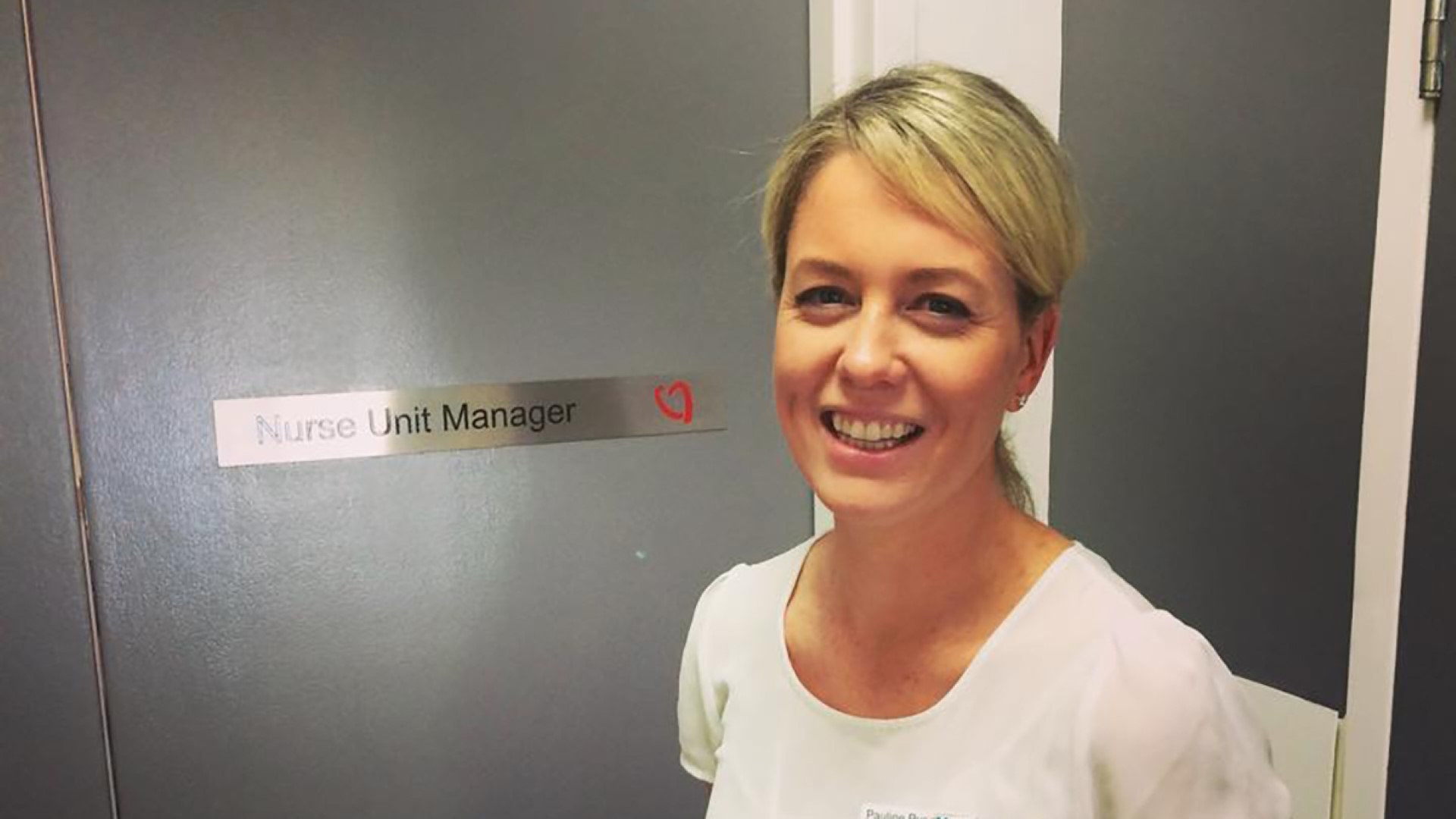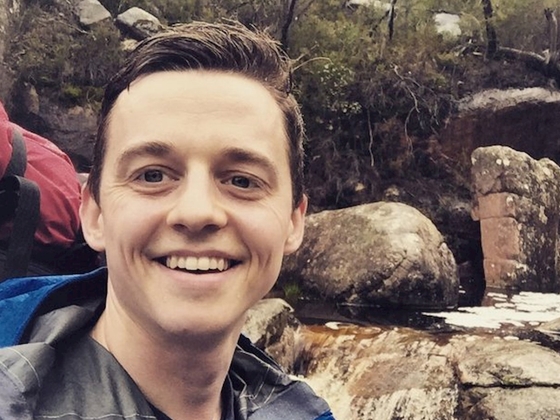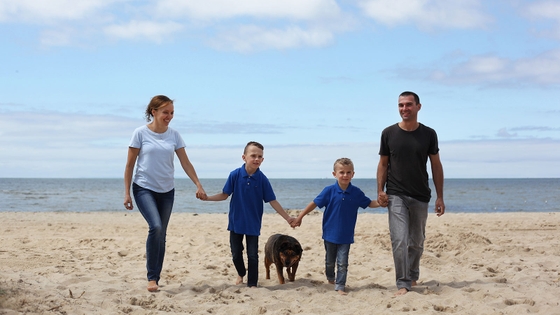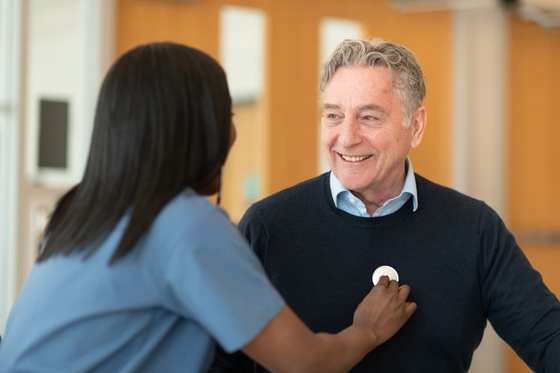
A nurse shares her top recovery tips for young cardiac patients
Blog: 17 July 2020
Pauline is a nurse and shares advice for young people who have had a heart event or are recovering from surgery.
My name is Pauline; I’m a nurse, and my experience covers working in cardiothoracic care, cardiology, intensive care and a cardiac preadmission clinic.
When I started writing this blog, I knew I wanted to share advice with young patients who have had a heart event and have had, or need to have surgery. However, I also realised that I wanted to highlight why health professionals need to know about the Heart Foundation’s Supporting Young Hearts program.
After first learning about the program, I immediately thought of so many patients that I could have, and should have referred to Supporting Young Hearts. In the short time since I discovered this program, I have seen the amazing, positive impact its support delivers.
Writing this blog is about sharing my experience with Supporting Young Hearts, but I also hope that other doctors, physiotherapists and nurses will read this and learn more about what the program offers to our patients. By sharing knowledge, I hope we can expand the reach of the program, so that younger cardiac patients can access this vital support.
Reflections on working as a cardiac nurse
A little about my background: I am very fortunate to have a nursing career that includes working in cardiothoracic (heart and lung surgery), cardiology, intensive care and a cardiac preadmission clinic. At one stage, I met patients before their surgery, guided them through their pre-operative care, nursed them in intensive care and then supported them through their recovery journey on the ward. I have been very blessed to share some incredibly happy and sad journeys with many patients, some of whom I am in contact with today.
Until March this year, I was the nurse unit manager of a cardiothoracic (heart and lung) unit. We cared for patients young and old, some only 12 years of age, who needed specialised cardiac care. Over the years, I have found this role rewarding, challenging and at times stressful. Nursing is about caring for a person when they are at their most vulnerable; maybe confused or even angry about their diagnosis and treatment and finding ways to help them physically and emotionally recover from their trauma.
Sometimes, care can be as simple as holding someone’s hand and just listening to their story; after all, "people generally forget what you said, or did, but they do remember how you made them feel.”
Going to hospital is often frightening; I really feel for those who have heart surgery.
My vital tips to support your recovery
Heart surgery is scary and confronting. I’ve learnt a lot when caring for people recovering from heart surgery. These are some of my tips that will hopefully help with your recovery:
You will experience pain
Surgery is a major trauma for your body, although it is a path to wellness. You will feel pain after surgery, and you will be prescribed pain relief medications to help you manage this.
Speaking up can be one of the most important steps in managing your pain; be vocal, tell your doctor or nurse what you are feeling and how you are managing with your pain. You know your body best but, if you find it difficult to move or take in a deep breath, ask for some pain relief. Remember to get on top of your pain management early.
Other tips to manage pain include wearing loose clothing; if you are a woman and wear a bra, use one with no underwire. Additionally, you can use a towel to cover your chest when wearing a seatbelt; this will help to minimise the pain.
Don’t be afraid to ask questions
Please ask questions! You could be one question and answer away from knowledge that can help your recovery. Remember, the doctors and nurses are there to answer your questions; there isn’t much you could ask that would surprise them.
When the doctor comes to see you in your room during their rounds, they might have just a minute or two with you and sometimes, everything they say can be too much information for you to take in. So, if you have any questions, write them down and then you can go through them. You might also write down the answers so you can look over this at another time.
Move your body
As soon as you are able, you will be asked to sit out of bed, in a chair. The first time you do this is the worst; it will feel very difficult, but it does get easier.
You do want to get your body moving, but you need to listen to the messages it is sending; if you are feeling tired, take a break.
To help your recovery, the physiotherapist will give you some exercises to do; it’s important to do them! Once you’re able to, simply walking around the ward is a great way to support your recovery. When you are home, you can keep walking with help from resources and guides developed by the Heart Foundation.
Cardiac rehabilitation
One of the most important things you can do to support your recovery is to complete a cardiac rehabilitation program; attendance at these programs is very low among younger patients.
Why should you go along? Think of it this way: you will most likely live with a heart condition for the rest of your life. Going to “cardiac rehab” gives you the education and information you need to manage your heart health.
When you go to rehab, please make it to all the sessions. Also, if your hospital does not refer you to a program, check with your GP and ask them to do it. Research shows that people who attend cardiac rehabilitation have a stronger, better recovery in the long run.
Accepting and understand your emotions, sleeping and celebrating the small wins
You may find that you are more emotional than usual after the surgery. On some days, you may feel extremely flat or tired. On others, you will be positive. These changes in your mood are normal; you may experience shifting feelings for at least six weeks after your surgery.
What can you do if you are worried about managing any negative feelings? Firstly, reach out for help. You can access support by speaking with your GP, the Heart Foundation Helpline (call 13 11 12) or by visiting the Cardiac Blues website. You can also check out this blog on emotional wellbeing and heart conditions.
Remember that your loved ones and friends can be experiencing emotional pain too; encourage them to call the Helpline or to speak with their GP.
Your recovery, any pain and your emotions may also impact on your sleep. If you have trouble sleeping, try taking your pain relief about 30 minutes before you go to bed. Another tip is to develop a bedtime ritual (have a shower, mediate or listen to some relaxing music); this way your mind and body know it’s time to start relaxing.
Lastly, be kind to yourself! This is tough and to get through the surgery and be discharged from hospital is a major accomplishment. Celebrate your small wins, you really do deserve to!
Welcome to your new normal
Your life will return to “normal”, but it will be a new normal. To help navigate this, speak with your doctor about when you can return to doing everyday things like driving or going to work. If you need additional support, speak with your hospital about services like social workers or case workers who can help you access support through Centrelink, if needed.
Your recovery will take time: it might be three months or more until you begin to feel “normal” again. By this time, you will have had your follow up with your surgeon and cardiologist. Your relationship with your cardiologist and your GP will be very important in moving forward and supporting your recovery, so make sure you feel comfortable with them.
Use your calendar and reminders to make sure you go to all appointments. Take lots of notes, read any useful information; it’s up to you to manage your heart health. Lastly, join the Supporting Young Hearts group.
You might be interested in...

Cardiac arrest at 26: adjusting to a new ‘normal’
At 26, Tom was the fittest he'd ever been, but a near-fatal cardiac arrest turned his life upside down.

Long-term recovery after a heart attack
Information to help you adjust to what could be the 'new normal'

Heart attack recovery – your next steps
Explore the Heart Foundation’s guide on the next steps you can take to recover after a heart attack and get back to doing the things you love.
Last updated05 March 2024